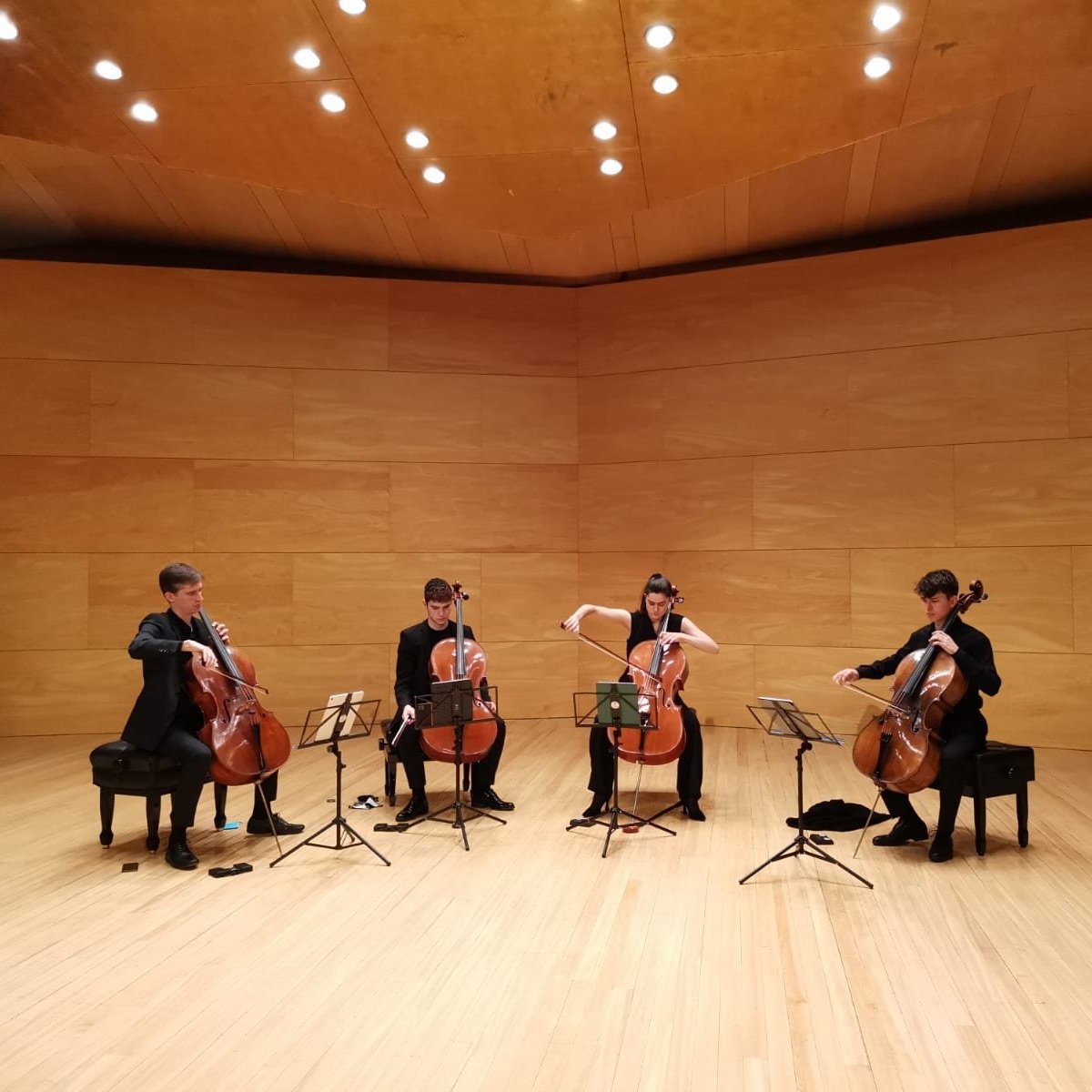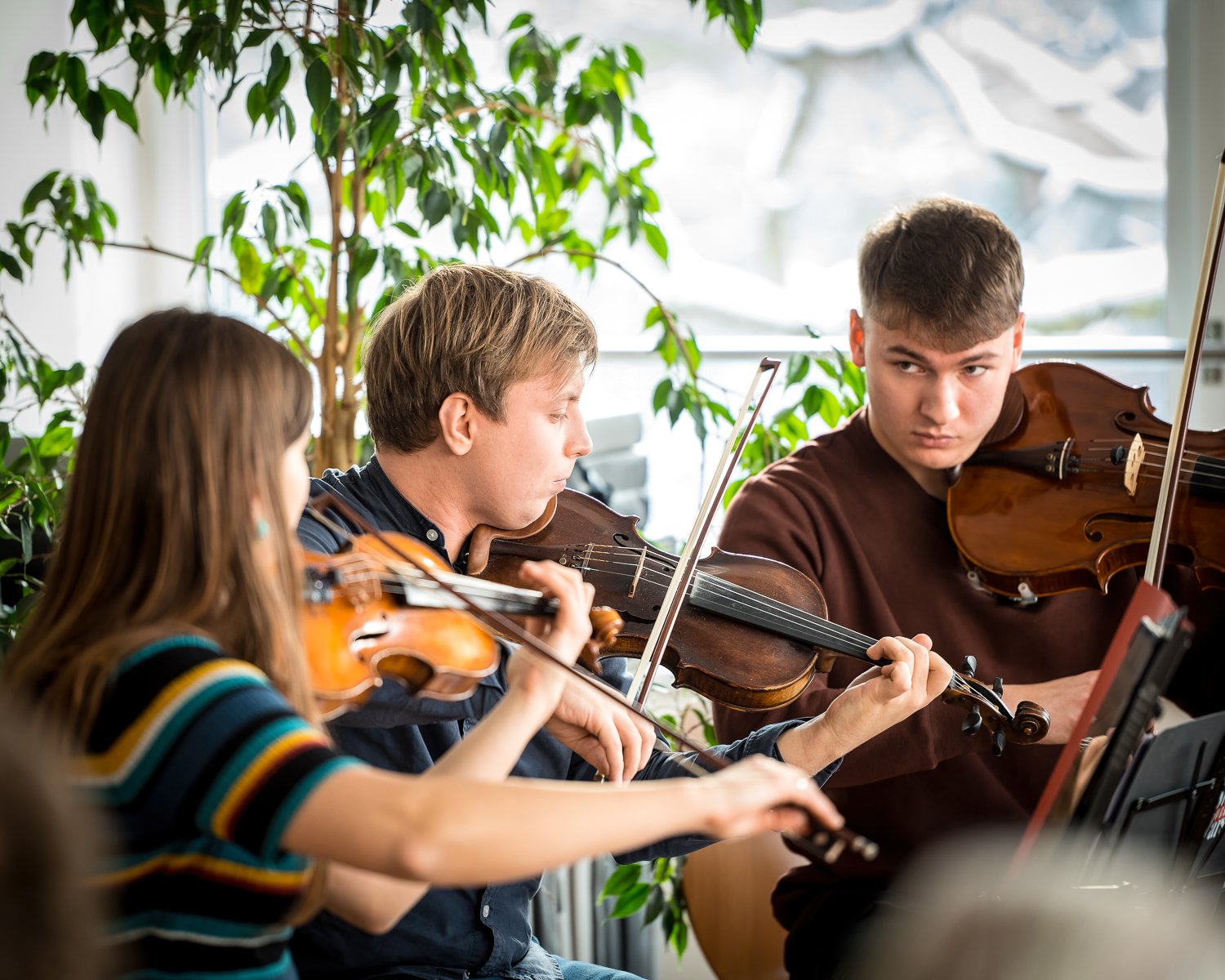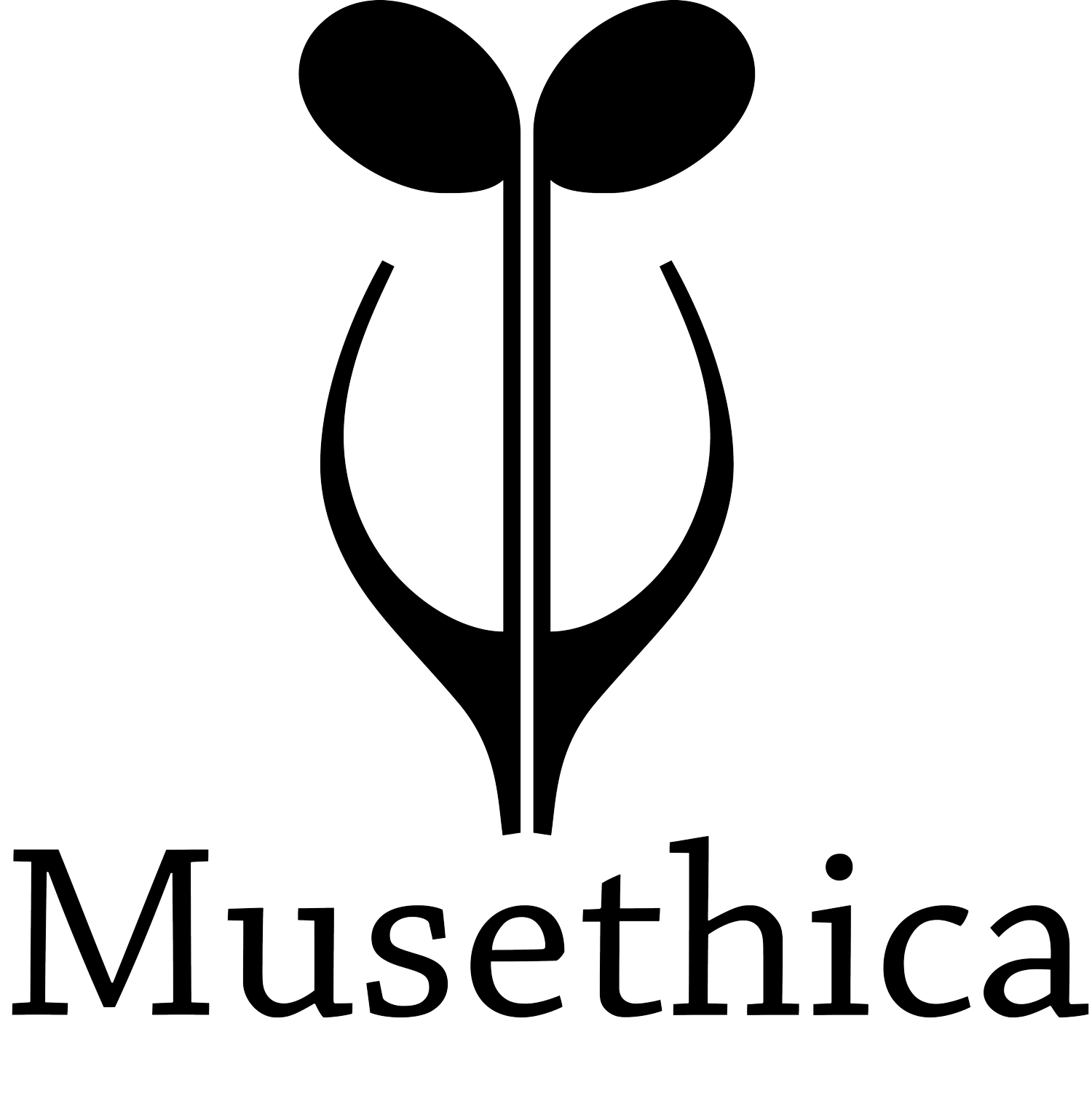An International Music Education Programme
with social impact






Musethica is an international music education programme enabling selected advanced young musicians and their tutors to improve their interpretative skills and to develop their inspiration, listening, and musical abilities.
Established in 2012 in Zaragoza, Spain by viola player Avri Levitan and social economics professor Carmen Marcuello, Musethica has since expanded its activities to 15 countries, including Germany, Spain, Sweden, Israel, Austria, China, Finland, France, Italy, Lithuania, Poland, the Netherlands, Norway, Portugal and Ukraine.
The Musethica method is rooted in the belief that making music is an act of communication between musicians and audience that cannot take place in isolation. The basis of the method is giving the selected young musicians daily performance opportunities during an intense period of time, accompanied by an experienced tutor. Instead of a concert being the end result of an educational process, concerts become an integral part of this process.
Over 85% of the concerts are performed outside traditional concert halls, in front of audiences who are not usually exposed to classical music and who may be unable to access traditional concert venues. They take place in refugee centers, prisons, schools, kindergartens, hospitals, care homes, homeless shelters, special education institutes and many other places. Musethica has a strong and direct social impact, providing free concerts of the highest quality to excluded groups in society, turning community centers, school halls and hospital common rooms into concert venues that are treated by the musicians in the exact same way as they would approach a concert in the most prestigious hall with the most discerning audience.
Musethica - Revolution in Classical Music Education
Avri Levitan at TEDxZaragoza
Learning through regular encounters
with an audience
Teaching a young musician to become a bridge between a musical text and a listening ear is a complicated and challenging task. This task requires intensive attention during the musicians‘ years of study at the university but is currently dealt with very seldom. To completely master an instrument and the art of interpretation, musicians need to have regular encounters with an audience. The Musethica method, therefore, combines daily concert performances with mentoring and feedback sessions.
Audiences play a special role in this process, as people who are less accustomed to the conventions of classical music performance (including, for example, children) show their emotional reactions to the music freely – both positive and negative. Such direct responses are a rare experience for musicians and can help them develop their inspiration, listening, and musical abilities.
After each concert, a dialogue takes place between the musicians and the audience to further promote audience engagement and musicians‘ listening skills. These intensive encounters show a unique positive development in the young musicians and their tutors, who usually experience tremendous improvement in a short time. Elements such as intuitive playing, reaction, concentration, and listening are strongly improved during a Musethica session. The musicians play with a different motivation in music-making compared to their experience at the music university.
Musethica’s activities
Musethica's primary educational activity is the Session, which is a week-long master course designed for advanced young musicians. These sessions consist of 10 to 14 concerts held at social institutions and public venues.
Each session follows a consistent structure: the week begins with two intensive preparation days, during which the young musicians receive coaching from world-renowned soloists or professors who serve as Musethica's tutors. In many instances, the tutor collaborates with the young musicians to form an ensemble. On the third day, the musicians start performing concerts within the local community. Typically, they play between 2-3 concerts per day, always accompanied by the tutor who provides valuable feedback and instruction between performances. The session culminates with a public performance in a traditional concert hall. Notably, all community concerts are offered free of charge.
Regardless of the venue, be it a traditional concert hall or a kindergarten, the same repertoire is presented with unwavering respect and the highest artistic standards. The musicians do not adapt the repertoire based on the audience, and no explanations are necessary; the music speaks for itself. After each concert, the audience has an opportunity to engage in dialogue with the musicians, fostering meaningful interactions.
Apart from regular sessions, Musethica hosts annual Chamber Music Festivals in Berlin, Zaragoza, Tel-Aviv, and Bourg- en-Bresse. These festivals are large- scale events where up to 14 international musicians participate, delivering up to 30 concerts in various social contexts throughout the local community. Furthermore, Musethica's impact extends to prestigious chamber music festivals such as the Zeist Music Days in the Netherlands, the Schleswig-Holstein Musik Festival and the Beethovenfest Bonn in Germany.
Implementation in
Higher Music Education Institutions
The idea behind Musethica was born from recognising a gap in traditional music education, as teaching young musicians to perform solely within the confines of music academies has certain limitations. Many aspects of teaching performance require the connection with listeners, which is rarely addressed within traditional music education. Musethica is a movement in education, and many young musicians, tutors, and institutions have expressed a need for such a program to be part of their curricula.
From the very beginning, Musethica aimed to integrate its educational model into Higher Music Education Institutions (HMEIs) and performance studies. Since 2017, the University of Music and Performing Arts Vienna (mdw) successfully implemented Musethica into its curriculum for selected students. Following this path, further HMEIs such as ESMUC Barcelona, the Jerusalem Academy of Music, the Conservatoire National Supérieur de Musique de Paris, the Norwegian Academy of Music in Olso, the Lithuanian Academy of Music in Vilnius, the Hochschule für Musik Hanns Eisler Berlin, the Musikhochschule Lübeck, the Scuola di Musica di Fiesole and the Central Conservatory of Music and Middle School in Beijing, and have collaborated with Musethica in different capacities.
This network of music academies is expanding, bringing hundreds of free concerts to local communities and teaching the younger generation of musicians and their tutors about their vital role in society.
Musethica’s Founders
Violist Avri Levitan was born in Tel Aviv, Israel, in 1973, and commenced his musical journey at the age of five. His musical education began at the Rubin Academy of Music in Tel-Aviv, under the tutelage of Prof. Chaim Taub, and then led him to the Conservatoire de Paris. During his formative years, Avri Levitan had the privilege of studying under the mentorship of Pinchas Zukerman, Pnina Salzman, Michael Tree of the Guarneri Quartet, and Ivry Gitlis. These mentors played a pivotal role in shaping his musical identity.
Beyond his role as a performer, Avri Levitan devoted himself to nurturing the next generation of musicians. At the age of 25, he became a dedicated viola and chamber music teacher. In 2008, he assumed the position of Professor and Music Director of the string program at CIEC La Rioja in Spain, and from 2010 to 2018, he held the position of Professor of Viola and Chamber Music at the Conservatorio Superior de Música de Aragón (CSMA).
Throughout his illustrious teaching career, Avri Levitan conceived a pioneering concept aimed at revolutionizing music education for future generations of musicians. Musethica, an organization founded by Levitan in 2012 in Saragossa, Spain, strives to integrate more concert practice into music education. Young musicians collaborate with their teachers to perform a wide range of concerts, with a remarkable 85% of these performances taking place in social institutions. The overarching objective of Musethica is to incorporate this model into master's programs at music institutions, and the organization has since expanded its reach to 12 countries. It collaborates with prestigious institutions such as the University of Music and Performing Arts Vienna, the Jerusalem Academy of Music and Dance, the Escuela Superior de Música de Cataluña in Barcelona (ESMUC), the Conservatoire National Supérieur Musique et Danse de Paris, and the Central Conservatory in Beijing.
Carmen Marcuello is a full professor in the Department of Business Management and Organisation at the University of Zaragoza. She specialises in social economy management and efficiency assessment in her teaching. In collaboration with several professors from the Faculty of Economics and Business, she has created the Social Economy Laboratory, which focuses on the development and support of social entrepreneurship projects. The study of social economy organisations, social entrepreneurship and social impact have been at the centre of her research development. Since 2003 she has been director of the GESES Research Group at the University of Zaragoza. From 2008 to 2014 she was director of the Department of Business Management and Organisation.
Since 2016 she has been Director of the Chair of Social and Cooperative Economy. Since 2017 she has been President of the Ibero-American Observatory for Employment, Social Economy and Cooperatives (OIBESCOOP) and Vice-President of CIRIEC-Spain. She is a member of the International Scientific Commission "Social and Cooperative Economy" of CIRIEC-International and of the Scientific Commission for the Social Economy of CIRIEC-Spain. She is also a member of the editorial board of the journals Annals of Public and Cooperative Economics and Revista CIRIEC-España, Revista de la Economía Social, Pública y Cooperativa. She collaborates as an expert in the Specialised Commission of the Observatory of Volunteering in Spain and in the Social Entrepreneurship Programme in Aragon of the Aragonese Development Institute. She participated in the creation of CEPES-Aragon and is co-founder of the association Musethica, of which she has been social director since 2012. She sits on the Board of Directors of the Special Employment Centre, Arapack, and the Insertion Company, Mapiser, as a member of the Board of Trustees of the Foundation for Integration and Employment.


